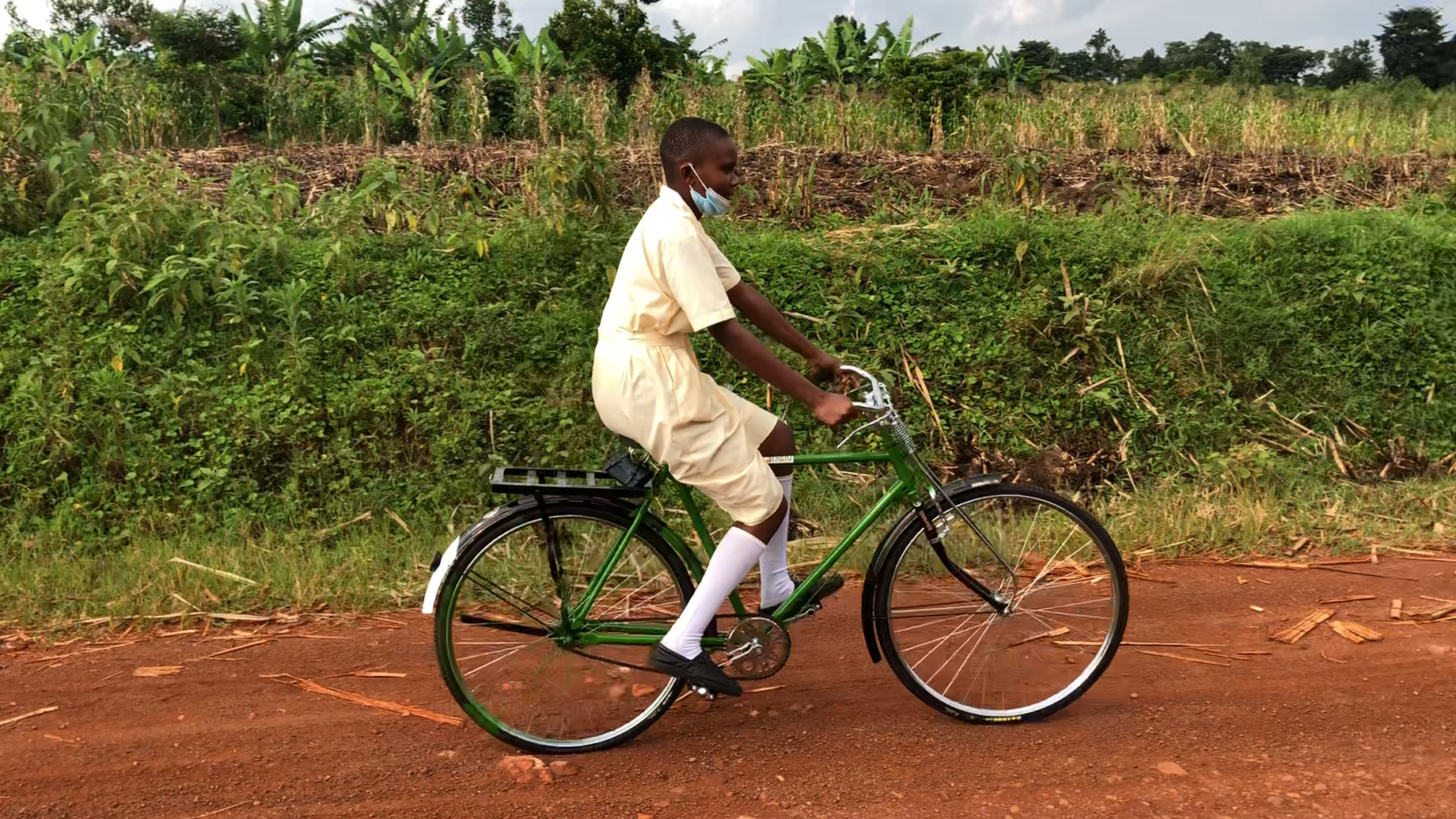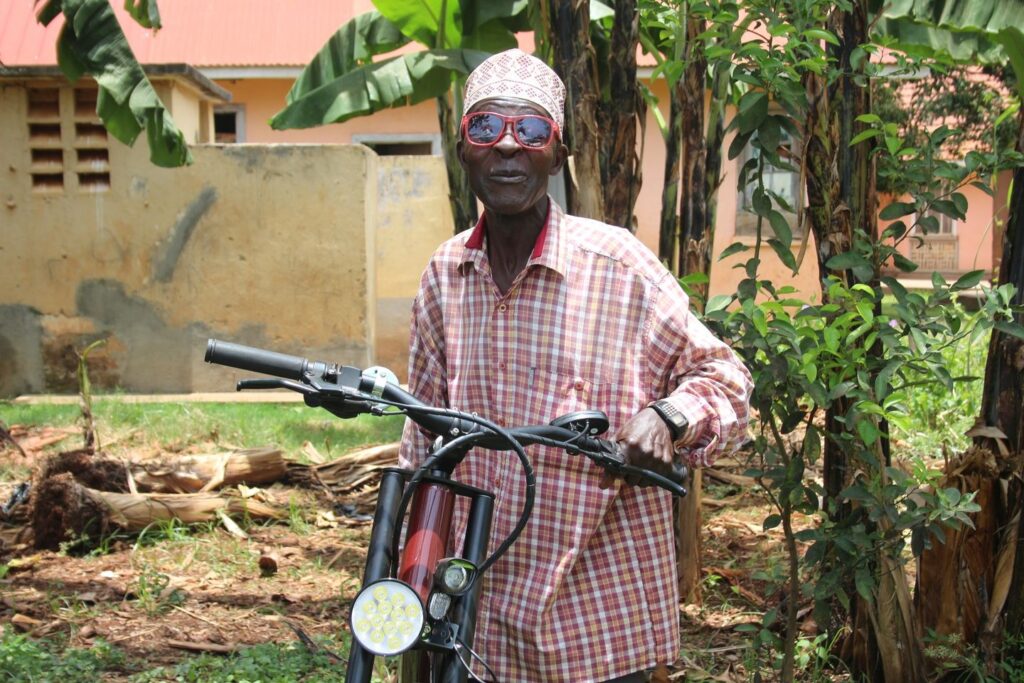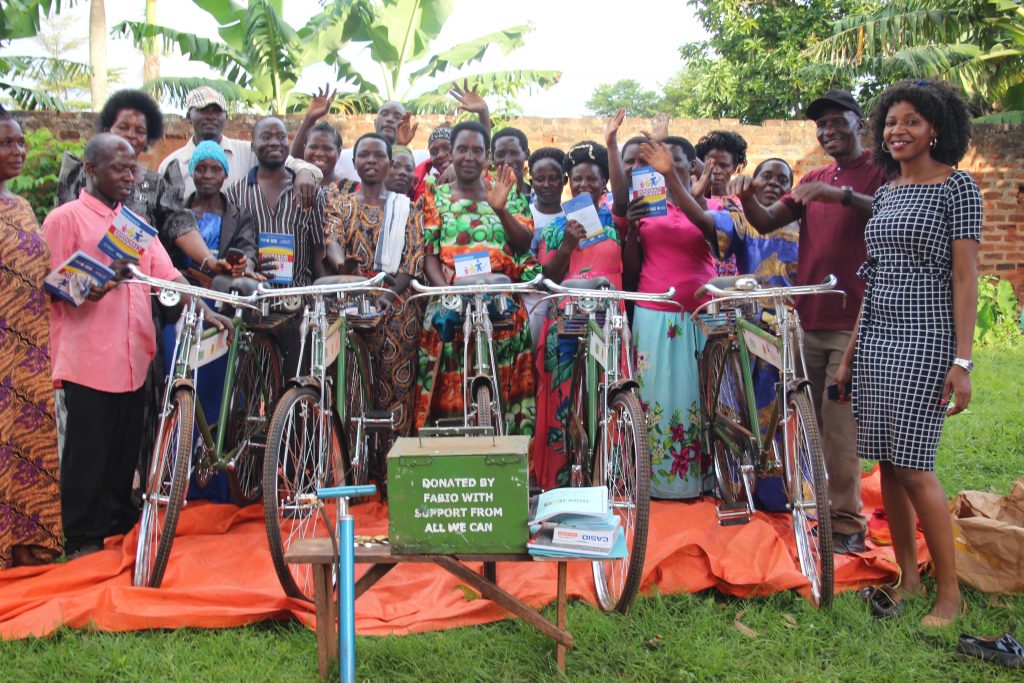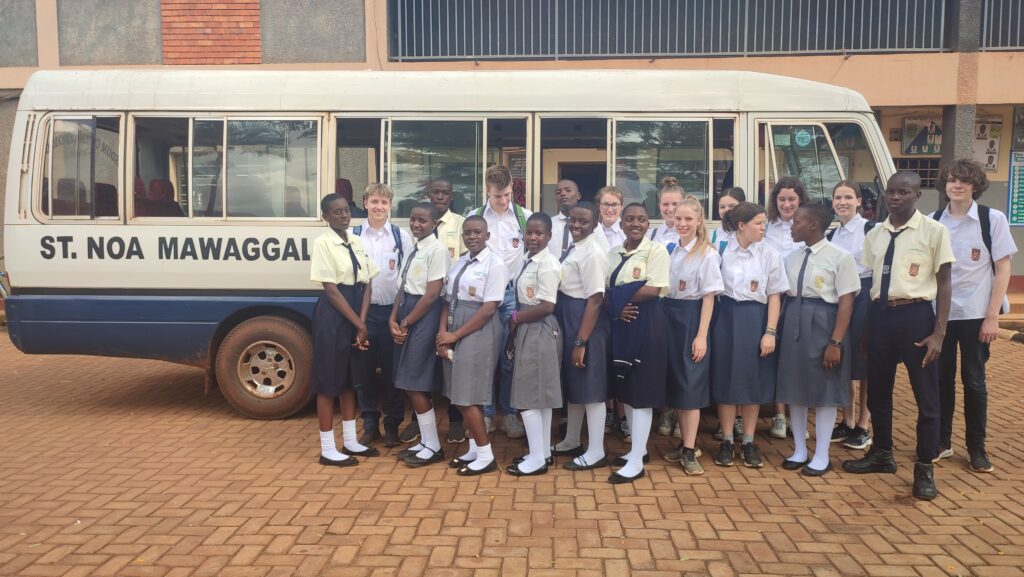Projects

CYCLE TO SCHOOL
Children are the future. However, in rural parts of Uganda their access to education is not great. One reason for this is the way to school, its length and the dangers it entails. This is even more relevant for girls, which are most at risk. As a result we at FABIO are also implementing the so called Cycle to School programme in rural areas of Jinja county with the motive of helping the students be safe and through increasing retention in schools, hence improving performance and therefore opening doors for their future.
As a result of the closure of schools due to Covid-19, however, we had suspended this program. Still, FABIO reembarked on the programme with the a new goal: Providing a bike for the family to improve their livelihoods during Covid and assuring that the bikes help raise money for the sutdents’ tutions. Click to read more…
E- Bicycle project.
As an organization dedicated to achieving social transformation by using bicycles, we also move with the times. Nowadays, bicycles can be different from their simple image, which we carry in our heads. Innovation has led to the development of E-Bikes (Electric Bikes). However, these are still essentially non-existent in Africa in general. Still, they present an excellent
opportunity for advancing sustainable transport, e.g. by replacing a common means of transport in Africa, called “Boda-Boda” in Uganda, which are motorcycles. On the other hand, they also allow for improving the livelihoods of people struggling with their conditions of life, in rural and urban environments. For instance, they can be used as water transport bicycles or ambulance bicycles. For all those fields of application, they can lead to better health, more time and income for the beneficiaries of the bikes, their families and even for their communities. That’s why we introduced the AfricroozE E-bike, the first E-bike adapted to the specific conditions found in sub-Saharan Africa. Click to read more…



Economic Empowerment SHGs
This project was initially designed as an emergency response during the first lock down. During this time public transport was difficult and the future of many people seemed to be insecure. These Groups (SHG) are a result of multi-input resilience project which started by forming 8 small groups of 20-25 people per group in the communities of Lubani, Mabira, Bubugo, Nabukosi, Kilanga and Lumuli. The idea was to bring together people of similar interests with the intention of solving their common challenges using the bicycle as a common denominator but with saving as a driving factor. However, since bicycles cannot carry much load by the nature of their design, Cargo Bicycles were constructed and distributed to the group members, especially those trading agricultural products, to ease their access to markets. The project was running so well that in 2022 FABIO decided to continue and expand it by building new SHGs in different communities.
Motivation Mobility (MoMo)
MoMo is a student exchange program, which students from Uganda and Germany participate in. We as FABIO were able to implement the program with the support from our German partner organization EURIST. Apart from bringing students from different cultures together, the project’s aim is also to educate and encourage them to work together on a sustainable project. This links the MoMo to one of our core goals: sustainability, but also goes beyond our main tool the bicycle. More specifically the students work together over a period of 2 years, and visit each others respective home country once. Their work focuses on goal No. 11 of the United Nations sustainability goals: The aim will be to develop an understanding of the relationship between mobility and quality of life in communities and cities. Furthermore, they will also gain an idea of each other’s social and mobility cultures in this process, which contributes to the innovativeness of the project and a global perspective on this UN goal. Click to read more...
